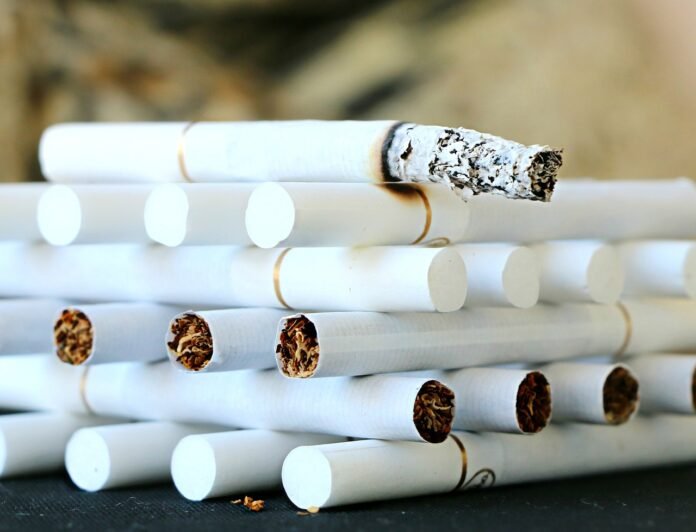MANILA–Visayas is fast catching up as the region with the highest illegal cigarettes incidence of 6 percent, a little shy of the 8 percent registered by Luzon with the region of Mindanao as the epicenter of illegal tobacco trade with an incidence of 45%, according to industry data shared by the National Tobacco Administration (NTA) during a recent forum.
In the Visayas region, Biliran province has the highest illicit trade incidence at 6 percent followed by Eastern Visayas including Southern Leyte with 3.7 percent as of the second quarter of the year from a mere one percent incidence in 2022.
Zamboanga Sibugay leads the provinces in Mindanao with the highest cases of illegal tobacco at 87.5%. Industry data also points to areas in Mindanao where nine out of 10 cigarettes sold come from illegal sources.
In Luzon, the province Bataan has the highest illegal tobacco incidence of 58.2%.
Illegal cigarettes are transhipped from Malaysia and Indonesia with Mindanao as the backdoor entry points, according to NTA.
Industry data also points to areas in Mindanao where nine out of 10 cigarettes sold come from illegal sources.
Smuggled and non-tax paid cigarettes are being sold openly in stores and other public areas all over the Philippines and priced between P3 to P4 per stick compared to the P8.55 per stick of legit and tax-paid cigarette brands.
Government tax revenues from the tobacco industry have dramatically fallen from a record high of P176 billion in 2021 to P135 billion in 2023, which can be partly attributed to the rampant tobacco smuggling.
Estimates by both Congress and the Bureau of Internal Revenue (BIR) placed the annual losses from illicit tobacco trade between P60 billion to P100 billion.
A new global study has also revealed that governments facing high incidence of illicit tobacco are hard pressed to acquire modern equipment and technology for their police and coast guard forces to fight global smugglers now using cutting-edge information and artificial technology (IT/AI) to elude detection.
The global study entitled “Fighting The Dark Underworld” showed that the billions lost in illegal tobacco trade are denying governments around the world to provide funding for their local law enforcement bodies like the police and the military to acquire modern equipment and fight illegal traders.
The study found out that organized criminal groups which are into illegal cigarette trade are now investing their illicit profits in new technology like IT/AI to modernize their operations and make them untraceable from law enforcement authorities (LEAs).
“An inability to invest in new technology reduces the ability of LEAs to enforce existing measures and keep pace with the advances being used by organized crime groups to avoid detection and arrest,” the global study on illicit tobacco said.
The new study was participated in by adult smokers in France, United Kingdom, Canada and the Philippines and examines how geo-political environments, fragile economies and a lack of serious deterrents create the ideal conditions for illegal tobacco trade to thrive.
It was conducted by Europe-based Intrinsic Insight, a global market research and think tank company headquartered in London, England.
In the case of Philippines, modernizing the country’s police force and the coast guard agency is often sidestepped by budget considerations biased toward health and social services.
The global study also discovered that in the four countries, which included the Philippines, more and more adult smokers are now finding it “normal” or acceptable to buy illicit cigarettes.
It is revealed that while 50% of the smokers sampled for the study felt that illicit tobacco trade is a threat to their country, 43% of them would be ‘comfortable buying cigarettes that they know to have been produced or sold illegally.”
Adult smokers from the four countries said they would “will “not mind buying illegal tobacco products.”
This means over four in 10 smokers surveyed by the global study would still buy illegal cigarettes that they know to have been produced or sold illegally.
For the Philippines, the study said about 33% of adult Filipino smokers would be willing to still patronize illegal cigarettes.
This has prompted President Ferdinand Marcos Jr. to order all government agencies to intensify the fight against the illicit tobacco trade to recover lost revenues and protect the country’s tobacco farmers.
To give impetus to this call, the President recently signed into law the Anti-Agricultural Economic Sabotage Law, which classifies select farm produce as protected commodities including tobacco products whose smuggling, hoarding and profiteering will constitute an act of economic sabotage that carries stiffer penalties including a non-bailable offense.
Image: Pixabay




